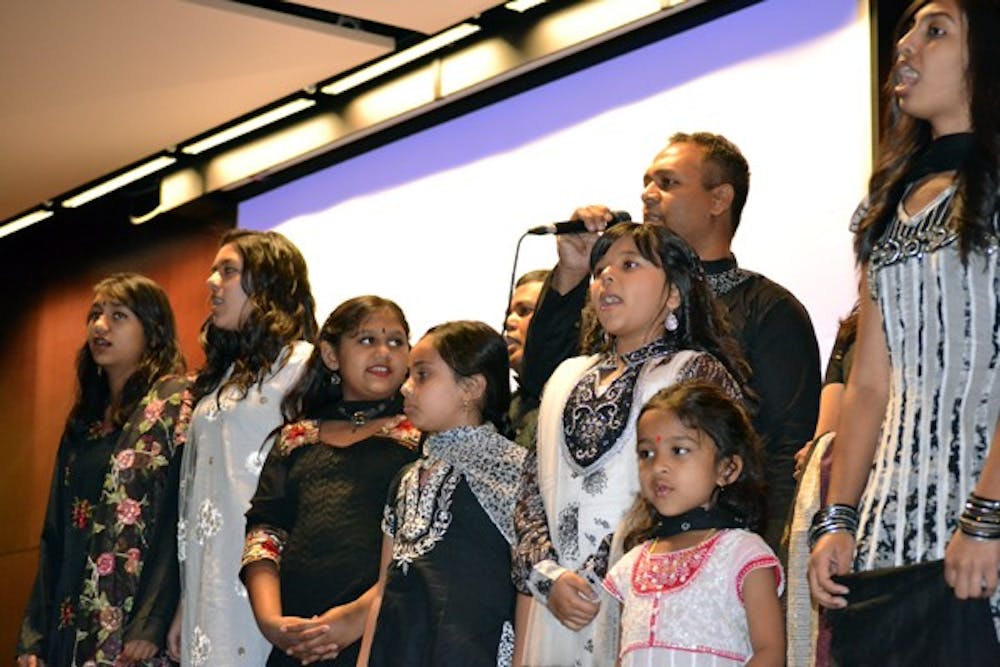 A family performs a song in their native costumes before the audience on International Mother Language Day. The presentation included singing and dancing and was done entirely in Bengali, the language of Bangladesh. (Photo by Mackenzie McCreary)
A family performs a song in their native costumes before the audience on International Mother Language Day. The presentation included singing and dancing and was done entirely in Bengali, the language of Bangladesh. (Photo by Mackenzie McCreary)The Bangladesh Student Association at ASU celebrated International Mother Language Day with traditional Bangladeshi dances, songs and performances Saturday at the Memorial Union on the Tempe campus.
The event was organized alongside the Phoenix Bangladesh Association and mainly attracted Bengali families and students. Most of the attendees wore traditional attire such as sharees and kurtas.
The night started with a brief documentary depicting the process by which Bangladesh got its freedom from Pakistan in 1971 and made Bangla the national language.
Afterward, people performed a variety of songs, dances, reenactments and poetry inspired by their heritage and history on stage.
International Mother Language Day was proposed by the People’s Republic of Bangladesh to recognize a group of students whom, in 1952, fought to make Bangla one of the national languages of the area, which was then Pakistan. It has since been celebrated every Feb. 21.
In 1999, International Mother Language Day was recognized by UNESCO as an international observance to promote multiculturalism and multilingualism.
Sanjay Paul, executive treasurer of BSA, said it is essential to be aware of the importance of the language and history of his country.
“Pakistan wanted to implement Urdu as the official language, but we fought for Bangla and for our rich culture,” he said.
BSA Cultural Activities Officer Rumpa Dey was one of the organizers of the event and said she hopes it will promote Bangla and its history.
“Bangla is the fourth most spoken language in the world,” she said. “Our culture is great. We have three Nobel Prize winners. We are very proud to come from Bangladesh.”
Although the rankings vary, Bangla is currently ranked among the top 10 most spoken languages in the world, according to the website Exploredia.
Electrical engineering graduate student Yuan Zhao was one of the attendees, and found it very interesting even though he does not speak Bangla.
“I like to see so many families with children,” he said. “I think that is the way traditional eastern people do it, and it’s very interesting to see.”
Psychology graduate student Amoneeta Beck also attended the event and thought it was entertaining, although he hoped translations would be available.
“It’s a very nice way to learn new stuff about the world,” he said. “I read a book on a woman living in Bangladesh during the war and found it very interesting. I wanted to come and learn more about this culture.”
Reach the reporter at dpbaltaz@asu.edu
Click here to subscribe to the daily State Press newsletter.




